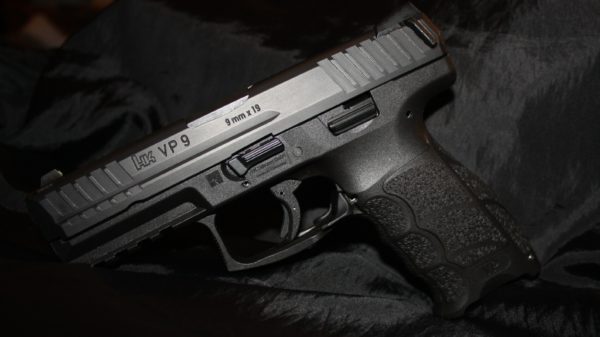
The King County, Washington Council is considering a program “that allows anyone with unwanted firearms or ammunition to turn those items in to any King County Sheriff’s Office precinct or a storefront operated by the agency,” despite a mountain of evidence that such programs do not reduce violent crime.
According to KIRO-TV and Yahoo news, the proposal “currently has the support of 4 out of 9 county councilmembers.” The Council is predominantly Democrat, and King County Executive Dow Constantine is a liberal anti-gun Democrat.
According to KING, the effort is just a program “to make it easier for residents to safely surrender unwanted firearms or ammunition.” Councilman Rod Dembowski asserted “past gun buyback programs have shown how effective such a program could be if made permanent.” The proposal is supported by three other council members, Girmay Zahilay, Jeanne Kohl-Welles and Joe McDermott.
It portrays this as a “gun return” program, as though those guns once belonged to the local government, which they did not.
Where Dembowski claims such programs have worked to “reduce the number of accidents, injuries and deaths caused by guns,” there is considerable evidence that’s simply not true.
An April 2021 memorandum to the Detroit City Council from David Whitaker, director of the Legislative Policy Division staff advised, “Gun buybacks have reemerged as a possible remedy to the proliferation of gun violence. Experts have long disputed the effectiveness of gun buyback programs, though cities continue to implement programs across the nation. Some believe removing any quantity of guns from the streets would result in a reduction in the amount of gun violence occurring in cities. However, research shows a gun buyback program alone will not decrease gun violence.”
In January 2020, The Journalist’s Resource reported, “Seattle’s gun buyback program in fall 1992 was among the first to be evaluated via peer-reviewed research. Gun owners turned over 1,172 firearms, almost all of which were working handguns, according to a 1994 evaluation published in Public Health Reports…The evaluation didn’t find statistical evidence that the program had an effect on gun violence.”
As far back as January 2013, USA Today reported, “Researchers who have evaluated gun control strategies say buybacks – despite their popularity – are among the least effective ways to reduce gun violence… The biggest weakness of buybacks…is that the firearms they usually collect are insignificant when measured against the arsenal now in the hands of American citizens.”
In May 2021, FEE.org published a length article about buybacks in which reporters noted, “Researchers said they identified 339 GBPs (gun buyback programs) across 277 cities, examining public records to determine the number of firearms sold in each. They concluded the data is clear: gun buybacks do not reduce gun crime.
“Using data from the National Incident Based Reporting System, we find no evidence that GBPs reduce gun crime,” the researchers said, according to the story. “Using data from the National Vital Statistics System, we also find no evidence that GBPs reduce suicides or homicides where a firearm was involved.”
CNN reported in April on a Chicago effort and quoted retired New York police sergeant Joseph Giacalone, who told the news agency, “It’s good theater. But it’s not helping deal with gangs and drug dealers and everyone else using the guns.
“These things are dog-and-pony shows,” said Giacalone, who now is a professor at John Jay College. “Look, a million dollars to do all this stuff, it’s not going to help violence in Chicago or anywhere else one iota. It’s feel-good, it’s to make it look like politicians are going to do something, but it means absolutely nothing.”
Perhaps the National Shooting Sports Foundation summed it up best noting, “Unfortunately, buyback events can give the public a false sense that their elected officials and local law enforcement are doing something to make their communities safer. The evidence is clear, they aren’t.”